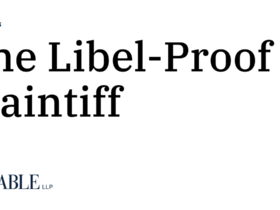In today’s digitally connected world, social media offers a platform for individuals to freely share their diverse views and opinions and easily connect globally. However, it also creates the grounds for false accusations that can severely harm reputations. Individuals facing this should work with a social media defamation lawyer and follow various other steps to deal with the situation. Here’s a breakdown of what you should do in this case.
Step 1: Calmly Evaluate the Situation
Whenever you come across online defamation, the instinct is to react instantly. But be patient and control your emotions because passionate or impulsive behavior can blow things out of proportion and sometimes be used as evidence against you. Take time to analyze the issue and figure out how this will affect your reputation.
Step 2: Document the Defamatory Content
Evidence collection and preservation are two of the most important matters when you are defamed on social media. Content may change immediately or be deleted, so evidence should be captured of the offensive post right from the point at which it was found.
Keeping a documented record of the defamatory material may be useful at a time when you wish to file litigation against the attacker. It will also be useful to request that the social media site remove the offensive content.
Step 3: Review the Platform’s Community Guidelines
Most social media sites have a definition of what cannot be posted to the site. A vast majority of portals define which material cannot be circulated by the site’s users. Examine community guidelines and terms of service before other actions for the platform to ascertain whether the posting violates any specific guidelines. Offenses often associated with libel include the following:
- Hate speech or harassment.
- Misinformation
- Bullying or personal attacks
Report the defamatory content in case it violates the policies of the platform where it is posted. When making such a complaint, be sure to attach all proof, such as screenshots and URLs. Follow their procedures for reviewing and removing harmful content, as guidelines differ on each platform.
Step 4: Request the Removal of the Post
After you have complained to the social network site, you should try to contact the poster. A polite but firm message requesting that they take down the post will likely suffice to resolve things straight away. In your message:
- Reiterate your calm and professional demeanor.
- Clarify how the statement is both false and damaging.
- Request that the post be removed immediately so as not to continue damaging any further.
While some people might agree to remove the libelous material, others might disagree or even become hostile. If so, do not approach them anymore because this can flare things up further. Seek other avenues of resolution.
Step 5: Approach a Lawyer
If the content is highly damaging or the respondent refuses to take down the posting, you may wish to seek a social media defamation lawyer. They can help you determine whether the content crosses the legal threshold of defamation and how to strategize proper action.
Sometimes, sending a cease-and-desist letter will make the person take the content down. If that does not work, your lawyer will take you through filing a lawsuit.
Step 6: Monitor and Protect Your Reputation
Monitoring your online reputation is extremely important, even after the post that defamed you has been erased. Defamation on social media spreads like wildfire, and maybe others have shared or reposted it. Set up an alert system to track future defamation activity against you.
Step 7: Engage in Positive Public Relations
In some instances, defamation can cause long-lasting harm to your image. It may be necessary to engage in a public relations strategy to repair the damage. This could involve:
- Issuing an official statement or clarification.
- Sharing positive news, updates, or accomplishments about your business or personal life.
- Collaborating with influencers or PR professionals to restore your reputation in the public eye.
Conclusion
Facing defamation on the internet can be overwhelming for everyone. However, adopting a calm approach helps reduce its impact on your self-esteem. Remember that reputation protection is a constant thing to do in the digital age, and being prepared is the best form of defence.















